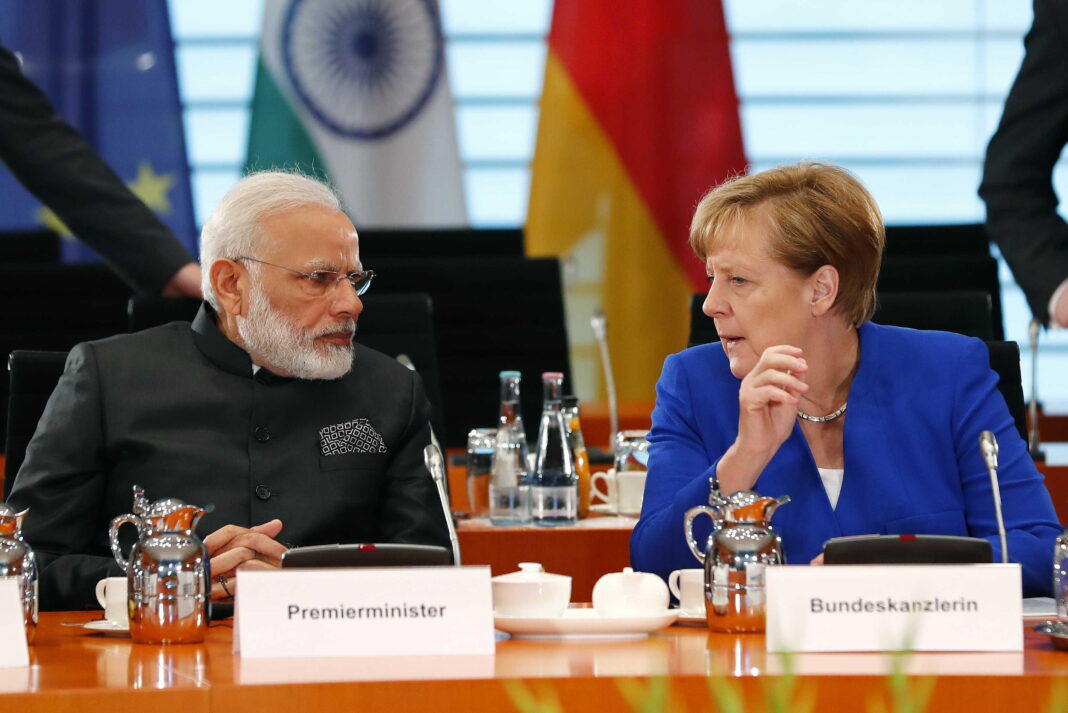By Michelle Martin and Thomas Escritt
BERLIN (Reuters) – Germany wants to develop its ties with India but this should not be at the cost of its trans-Atlantic relationship, Chancellor Angela Merkel said on Tuesday after meeting Indian Prime Minister Narendra Modi.
Merkel, trying to repair damage after shocking Washington on Sunday by declaring the era in which Europe could rely on its partners was somewhat over, repeatedly stressed the importance of trans-Atlantic ties. But she also highlighted Germany’s history of cooperating with India and China in a global world.
[ngg_images source=”galleries” container_ids=”11″ exclusions=”136,137″ display_type=”photocrati-nextgen_basic_imagebrowser” ajax_pagination=”1″ order_by=”sortorder” order_direction=”ASC” returns=”included” maximum_entity_count=”500″]On Monday, Merkel had underlined her doubts about the reliability of the United States as an ally.
Merkel talked to Modi in Berlin about developing cooperation with India.
“That’s of huge importance and in no way directed against any other relationships and certainly not against the trans-Atlantic ties, which have historically been very important for us and will remain so in future,” she said.
Merkel said she and Modi had discussed open markets and free and fair trade during their meeting in Berlin.
In a thinly veiled dig at the Trump administration, Merkel said “protectionist tendencies” were increasing worldwide and this made it necessary to remain open and ensure conditions for negotiations are fair.
“For that reason it’s important to us that we make progress on the German-Indian, or rather EU-Indian free trade agreement,” she said at a Berlin business forum where she shared a platform with Modi.
Modi said economic collaboration between Germany and India was still “below full potential”.
Speaking at a joint news conference with Modi, Merkel reiterated her view that “we need to take our fate in Europe into our own hands”.
Europe needs to step up its presence on the international stage, for example by bringing about solutions to issues
such as the Libya conflict, migration and economic problems including unemployment, she said.
Merkel praised India for implementing that climate pact very “intensively and in a very committed way” and Modi said people had no right to ruin the environment for future generations.
The German and Indian governments signed numerous agreements, including on cyber cooperation, development cooperation, education and railway safety.
In a sign of Berlin’s shifting focus towards Asia, Merkel is also due to meet Chinese Premier Li Keqiang on Wednesday.
(Additional reporting by Paul Carrel and Andreas Rinke; Writing by Michelle Martin; Editing by Louise Ireland)







